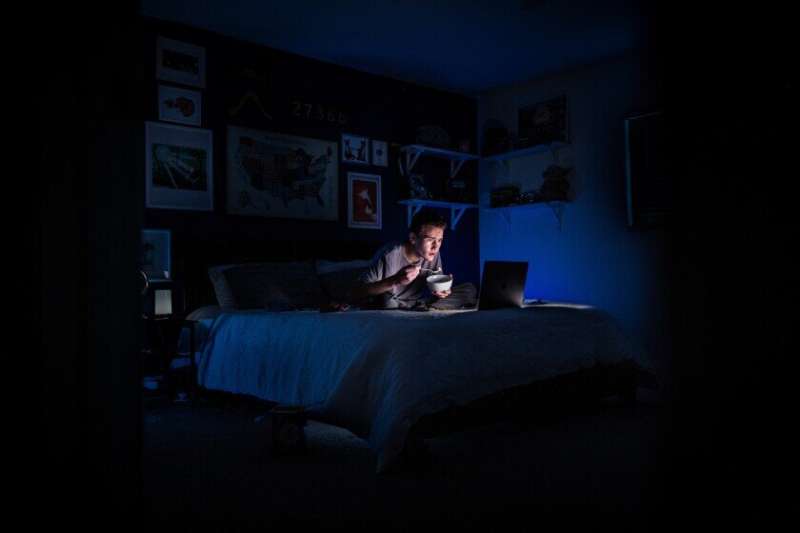
With summer in full swing and daily schedules changing, teenagers may be rolling out of bed closer to lunchtime than breakfast. And while the occasional late night is fun, research suggests that poor sleep habits are linked to a host of health problems such as obesity, depression, anxiety, and learning disorders. A new study from BYU found that the activities teens do before bed significantly impact the quantity of their sleep.
The study, recently published in the Journal of Research on Adolescence, found that certain activities—spending time with friends, hanging out in public places, and low-effort entertainment such as viewing social media, snacking or watching TV—reduce teens’ sleep duration when done late in the evening. However, activities that require mental or physical effort, such as doing homework, talking to parents, or playing sports in the early evening, were associated with earlier sleep times.
“If the activities adolescents are doing in the evening shift bedtimes later, they get less sleep, and that can be harmful for teenagers,” said BYU family life professor Jocelyn Wikle, a co-author of the study.
The study notes that evening entertainment not only affects the time teens get to bed, but it also impacts how quickly they fall asleep. Teens who fell asleep before the average time of 10:40 p.m. slept an average of 90 minutes longer than those who went to bed later because they were able to increase their sleep duration.
“Teens who go to bed earlier tend to get more sleep because most teens wake up around the same time in the morning to get ready for school,” said BYU professor of developmental psychology Blake Jones, who co-authored the study. “A key factor in sleep duration for teens can be found on the side of when they go to sleep at night, where there is flexibility and variability.”
Catching up on sleep during the weekend isn’t the solution some teens think it is, said Jones. “There is no replacement for missed weekday sleep,” he said. “You cannot effectively catch up on insufficient weekday sleep by just sleeping in on the weekend.”
The researchers said evening routines are one of the easiest things parents can adapt to help their teens get as much sleep as possible. Establishing such habits (and getting kids to buy into them) takes time and communication, said Wikle.
“I think it is important for parents to realize that it is okay if it doesn’t work like clockwork and that this is a process that may take time to implement,” she said. “Parents are trying to teach good habits, while at the same time remaining close to their kids.”
More information:
Blake L. Jones et al, Activities and social contact as antecedents to sleep onset time in U.S. adolescents, Journal of Research on Adolescence (2023). DOI: 10.1111/jora.12857
Journal information:
Journal of Research on Adolescence
Source: Read Full Article


